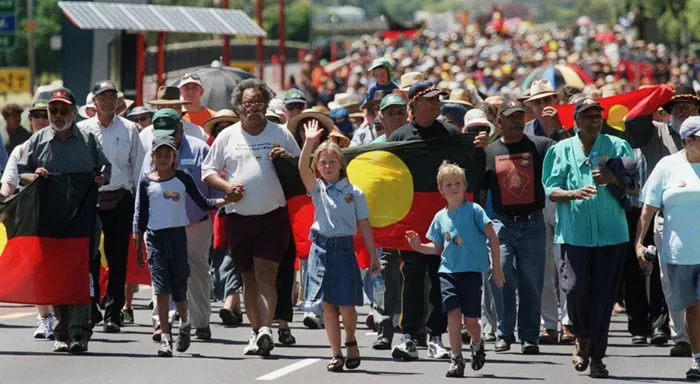May 31st holds a special place in the chronicles of Australian history, marked by a tapestry of events that have shaped the nation’s identity and trajectory. From moments of triumph and progress to instances of tragedy and resilience, this date serves as a microcosm of Australia’s rich and diverse historical narrative. In this article, we delve into the significant events that unfolded on May 31st, tracing the threads of Australia’s past and exploring the impact they have had on the nation’s development.
The Launch of the First Fleet (1787)
One of the most pivotal events in Australian history occurred on May 31st, 1787, with the departure of the First Fleet from Portsmouth, England. Comprising 11 ships carrying over 1,000 passengers, including convicts, marines, and settlers, the First Fleet set sail for the distant shores of Australia under the command of Captain Arthur Phillip. Their voyage marked the beginning of European colonization in Australia and laid the foundation for the establishment of the British penal colony of New South Wales. The arrival of the First Fleet in Botany Bay on January 18th, 1788, would ultimately reshape the continent’s landscape and shape the course of Australian history.
The Creation of the Commonwealth of Australia (1901)
May 31st, 1901, marked a historic milestone in Australian history with the proclamation of the Commonwealth of Australia. Following decades of political debate and negotiation, the six British colonies of New South Wales, Victoria, Queensland, South Australia, Western Australia, and Tasmania federated to form a single nation under the Commonwealth Constitution. The inauguration of the Commonwealth of Australia represented a momentous achievement in nation-building, uniting a vast and diverse landmass under a federal system of government. The new nation embarked on a journey of self-governance, forging its own identity and shaping its own destiny on the world stage.
The Black Friday Bushfires (1939)
Tragedy struck on May 31st, 1939, with the outbreak of the Black Friday bushfires in Victoria. Fueled by extreme heat, high winds, and prolonged drought, the fires raged across vast swathes of the state, destroying homes, businesses, and forests in their path. The Black Friday bushfires claimed the lives of 71 people and left thousands homeless, making it one of the deadliest natural disasters in Australian history. The devastation wrought by the fires prompted a renewed focus on bushfire prevention and management, leading to the establishment of firefighting agencies and the implementation of fire safety measures across the country.
The Opening of the Sydney Opera House (1973)
May 31st, 1973, marked a cultural milestone in Australian history with the official opening of the Sydney Opera House. Designed by Danish architect Jørn Utzon, the iconic structure had been under construction for over 14 years and had faced numerous challenges and controversies along the way. The opening ceremony, attended by Queen Elizabeth II, heralded the completion of one of the world’s most distinctive architectural marvels and signaled Australia’s emergence as a global cultural hub. The Sydney Opera House has since become an enduring symbol of Australian identity and a testament to the power of human creativity and innovation.
The Reconciliation Walk Across the Sydney Harbour Bridge (2000)
On May 31st, 2000, an estimated 250,000 people participated in a historic reconciliation walk across the Sydney Harbour Bridge. The event, organized as part of National Reconciliation Week, aimed to promote understanding, respect, and unity between Indigenous and non-Indigenous Australians. The reconciliation walk symbolized a shared commitment to healing the wounds of the past and building a more inclusive and equitable future for all Australians. It marked a significant step forward in the journey toward reconciliation and recognition of Indigenous rights and cultures, inspiring similar initiatives across the country.
The National Apology to the Stolen Generations (2008)
May 31st, 2008, marked a watershed moment in Australian history with the delivery of a formal apology to the Stolen Generations by then-Prime Minister Kevin Rudd. The apology, delivered in the Australian Parliament, acknowledged the historical injustices and trauma inflicted upon Indigenous Australians through the forced removal of children from their families and communities. It represented a long-awaited acknowledgment of past wrongs and a commitment to reconciliation, healing, and justice. The National Apology marked a significant step toward addressing the legacy of colonization and advancing the cause of Indigenous rights and recognition in Australia.
Conclusion
May 31st stands as a day of significance in Australian history, marked by a diverse array of events that reflect the nation’s triumphs, challenges, and ongoing journey toward reconciliation and unity. From the arrival of the First Fleet and the creation of the Commonwealth of Australia to the opening of the Sydney Opera House and the National Apology to the Stolen Generations, this date serves as a reminder of Australia’s rich and complex heritage. As Australians reflect on the events that have unfolded on May 31st, they gain a deeper appreciation for the resilience, diversity, and shared values that define their national identity.

